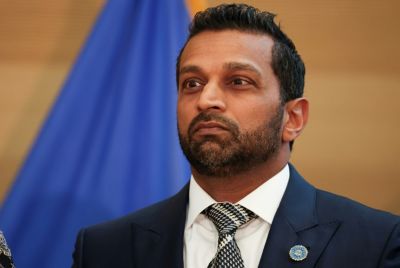Donald Trump Claims Overregulation Will Allow China To Beat US in AI Race, Suggests One Federal Standard
Trump blamed some states for producing 'woke AI'

In his fresh remarks on 19 November 2025, US President Donald Trump warned that China could soon outrun US progress in the AI race. He raised this concern after new signs of fragmented rules slowed AI work across many states.
His message came from Washington during early morning hours. He claimed that rising limits on AI harm economic growth and national strength. Trump said that this trend grows through state actions that apply separate rules.
He argued that China could gain ground through faster moves and lighter barriers. The American leader further stated that this shift could happen through slow US action on unified standards.
READ MORE: Trump Threatens to Revoke ABC's License Over Reporter's 'Attitude' and Questions on Epstein Files
READ MORE: White House 'Official' Response On Trump's Quiet Piggy' Statement: Are They In The Right?
Donald Trump Slams AI Overregulation, 'Woke AI'
Donald Trump posted a long message on Truth Social. He attacked state rules that place fresh limits on AI work. He said that these rules drag growth and block new ideas. His post also targeted what he called 'Woke AI.'
Trump wrote: 'Investment in AI is helping make the US Economy the 'HOTTEST' in the World but overregulation by the States is threatening undermine this Major Growth 'Engine.''
He added that some states try to embed DEI ideas within AI. Trump even linked this trend with a case he called 'Black George Washington.' He argued that such changes weaken models.
Trump Calls for One Federal Standard in AI
Trump's latest remarks on Truth Social highlighted a wider push for a unified framework. His message focused on rising risks linked with separate rules across all fifty states.
His statement stressed that fragmented oversight slows AI work and weakens national output. Because of this, Trump called for one nationwide rule that clears conflicting demands across state lines.
'We MUST have one Federal Standard instead of a patchwork of 50 State Regulatory Regimes,' said the US president.
He also warned that China could 'easily catch' US progress if lawmakers fail create a shared model.
Trump introduced an AI Action Plan early during his second term. That plan aimed to build national strength within AI and clear long-standing barriers. His office framed this move as a major step for economic security and global influence.
Trump's Recent AI Effort
Three executive orders signed on 24 July 2025 formed Trump's most direct effort. These orders targeted what he called 'woke' AI, datacentre growth, and export expansion.
According to The Guardian, he unveiled these steps during an AI summit in Washington. His remarks attacked 'woke Marxist lunacy in the AI models.' During that event he asked crowds: 'Once and for all we are getting rid of woke. Is that OK?'
His comments also blamed past rules under President Biden for placing DEI at the centre of AI work. 'So you immediately knew that was the end of your development,' he said. Trump also expressed dislike for the term 'artificial intelligence.' His words were: 'I can't stand it... I don't like anything that's artificial.' He added: 'It's not artificial. It's genius.'
The three orders required neutral AI models within federally funded labs. They also sped building of datacentres through lighter barriers. His 'Winning the Race' plan cut red tape that slowed major projects.
China Trust AI More Compared US
An Edelman poll published on 19 November 2025 revealed a sharp split in global trust levels. China reached an 87% trust score for AI while US respondents reached 32%.
Younger Chinese respondents showed 88% trust compared with 40% among young Americans. Edelman senior vice president Gray Grossman said: 'In high-trust markets the task sustain optimism... In low-trust markets the task rebuild confidence in the institutions behind the technology.'
Poll results linked directly with Trump's warning. Growing doubt within the US pushed support for tighter rules. State actions expanded through that doubt and created heavier limits for developers.
Trump argued that such limits slow national progress while China expands fast. This gap could allow China to gain ground during a global AI competition.
© Copyright IBTimes 2025. All rights reserved.




















